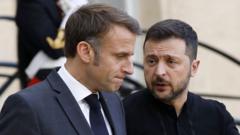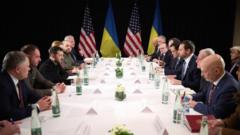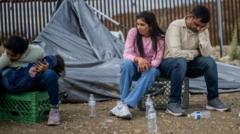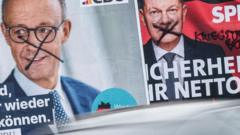In a controversial address, Vice President JD Vance called on European nations to reconsider their exclusion of far-right parties, particularly ahead of significant elections in Germany.
Vance Urges Europe to Embrace Extremist Parties Ahead of German Elections

Vance Urges Europe to Embrace Extremist Parties Ahead of German Elections
Vice President JD Vance critiques Europe’s attitude towards far-right parties, emphasizing free speech and voter sentiment.
In a speech at the Munich Security Conference, Vice President JD Vance stressed to European leaders that the primary threat to their security comes not from external military powers like Russia or China, but rather from their internal suppression of free speech. He expressed concern over the efforts to marginalize hard-right parties, notably the Alternative for Germany (AfD), urging countries to embrace democratic values that allow diverse political expression.
Vance positioned this message against the backdrop of the upcoming German elections, indicating that European governments are mistaken in maintaining a "firewall" against parties they deem extremist. He pointed out that such exclusionary practices fail to reflect the frustrations of a populace concerned about high levels of immigration. While many parties in Germany have collectively refused to include the AfD in governance, citing historical sensitivities, Vance argued that ignoring these voices betrays democratic principles.
Additionally, the Vice President criticized broader practices across Europe, highlighting how regulations intended to combat misinformation and laws that restrict protests have negatively impacted free speech. He noted that these restrictions particularly affect Christians, who he claimed are often silenced under current norms.
As the European political landscape evolves, Vance’s remarks will resonate differently across the continent. Supporters may view his approach as a necessary awakening to neglected voter sentiments, while opponents will likely view it as a troubling endorsement of extremist views. The dialogue around populism and immigration continues to be a divisive topic, raising questions on the balance between preserving democratic values and addressing security concerns.






















